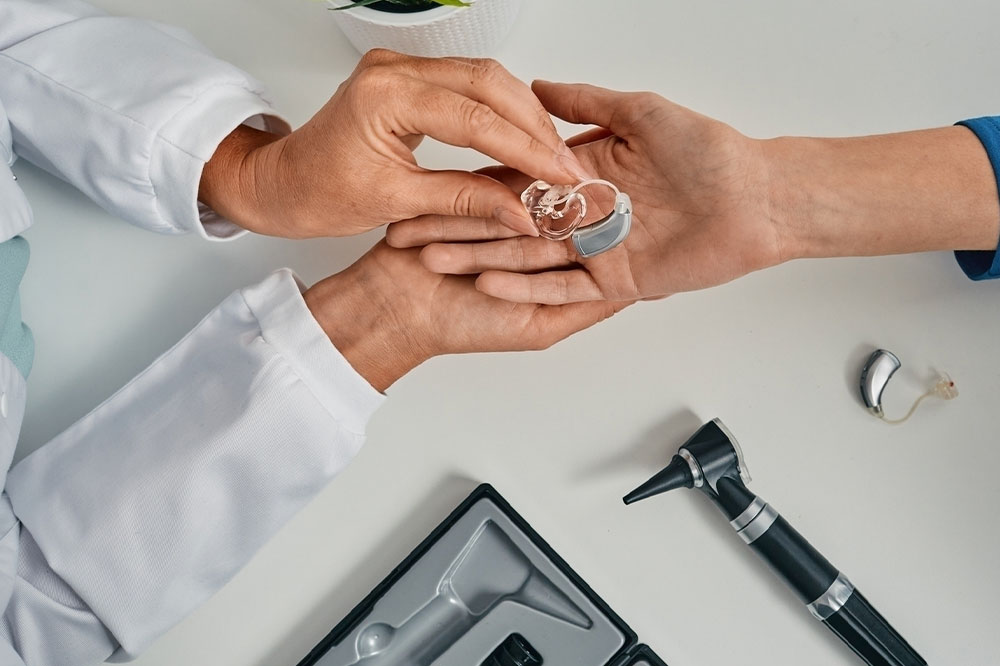
Audiologists – Function, expertise, and training
- Within the realm of healthcare, a specialized group of professionals called audiologists study and practice auditory care. These trained professionals complete extensive educational programs tailored to the intricate workings of the human ear and help individuals optimize their hearing abilities and other neural systems. This article will help you understand what they do at length. Here are their most common functions, educational levels, and earning potential for those looking to delve into this field:
What are audiologists?
Audiologists are specialized healthcare practitioners who focus on evaluating and managing disorders related to hearing and balance. They possess a deep understanding of the auditory system and use a combination of physical examinations, patient histories, and advanced tools to assess, diagnose, and treat many conditions that impact hearing and balance, ranging from hearing loss to vertigo.
While looking for “audiologists near me,” one can utilize online healthcare directories, consult local hospitals or clinics, and ask for recommendations from one’s primary care physician or acquaintances who have received audiological care. These resources help locate qualified and experienced audiologists in one’s local area.
What conditions do they treat?
Some of the conditions that audiologists commonly address include the following:
- Hearing loss: There are different types and degrees of hearing loss due to age or loud noise exposure. These may include sensorineural, conductive, and mixed hearing loss, significantly impacting one’s communication abilities.
- Noise-induced hearing loss: Noise-induced hearing loss is common among musicians, industrial workers, and sports enthusiasts. Audiologists offer custom hearing protection devices and suggest preventive measures for such individuals.
- Tinnitus: A condition characterized by persistent ringing or buzzing sounds in the ears, tinnitus may require a combination of counseling, sound therapy, and recommended devices to manage its symptoms.
- Balance disorders: Balance issues can cause dizziness, vertigo, and unsteadiness, impacting everyday life.
- Auditory processing disorders: Auditory processing disorders (APD) affect how one’s brain processes sound, leading to delayed responses, oversensitivity to sounds, and other communication issues.
- Ear infections and disorders: These may include otitis media, otosclerosis, and Meniere’s disease.
- Earwax complications: Excessive earwax (cerumen) can cause discomfort, complications, and hearing issues and may require specialized techniques and instruments to prevent complications.
These are just some examples of the conditions that audiologists address. Their expertise extends to a wide range of auditory and balance-related issues, allowing them to provide comprehensive care to individuals of all ages.
What work does an audiologist do?
Here’s what audiologists do:
- Evaluation and diagnosis: Audiologists conduct comprehensive assessments to determine the extent and nature of hearing loss or balance problems. They utilize tests like audiometry, otoacoustic emissions, and vestibular evaluations to accurately diagnose hearing-related conditions.
- Treatment and rehabilitation: Based on the evaluation results, audiologists develop personalized patient treatment plans, including auditory rehabilitation, assistive listening devices, cochlear implants, and other therapeutic interventions. They also provide counseling and guidance on communication strategies and auditory training to help individuals adapt to hearing loss.
- Pediatric audiology: Audiologists specializing in pediatric audiology work closely with children, assessing their hearing and speech development. They are crucial in early intervention for infants and toddlers with hearing loss, facilitating language acquisition and overall development.
- Research and education: Audiologists often conduct research to advance the field of audiology and contribute to developing new diagnostic and treatment techniques. They also play an essential role in educating patients, families, and other healthcare professionals about hearing health and the available options for managing various conditions.
Education and certification for audiologists
The standard educational pathway for audiologists includes the following:
- Bachelor’s degree: Aspiring audiologists typically begin by completing a four-year undergraduate program.
- Doctor of audiology (AuD): After completing their bachelor’s degree, students can go for a Doctor of Audiology (AuD) degree, which covers topics like anatomy and physiology of the auditory system, among other assessments.
- Clinical experience: Aspiring audiologists also need to work with patients under the supervised guidance of experienced audiologists. This is crucial to developing the necessary skills and competencies.
- Licensure and certification: Following graduation from an Au.D. program, audiologists must obtain a license to practice in the state in which they wish to work. Licensure requirements vary by state but typically involve passing a national examination. Audiologists may also pursue additional certifications offered by the American Speech-Language-Hearing Association (ASHA).
Audiologists are classified into various categories based on their education and expertise. Entry-level audiologists offer general audiological assessments, while advanced-level audiologists have specialized training in pediatric audiology and balance disorders. These levels ensure patients have access to a range of specialized care options.
The fees for obtaining a doctoral degree in audiology generally range from $76,000 to $150,000. Achieving board certification as an audiologist can incur additional costs of $300 to $500. State licensing fees can vary and typically last one to three years. An average base salary for an audiologist is $91,084. But it’s important to note that these fees and salaries depend on various factors such as the educational institution, location, certification board, expertise, practice experience, and additional skills.




